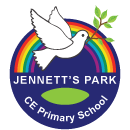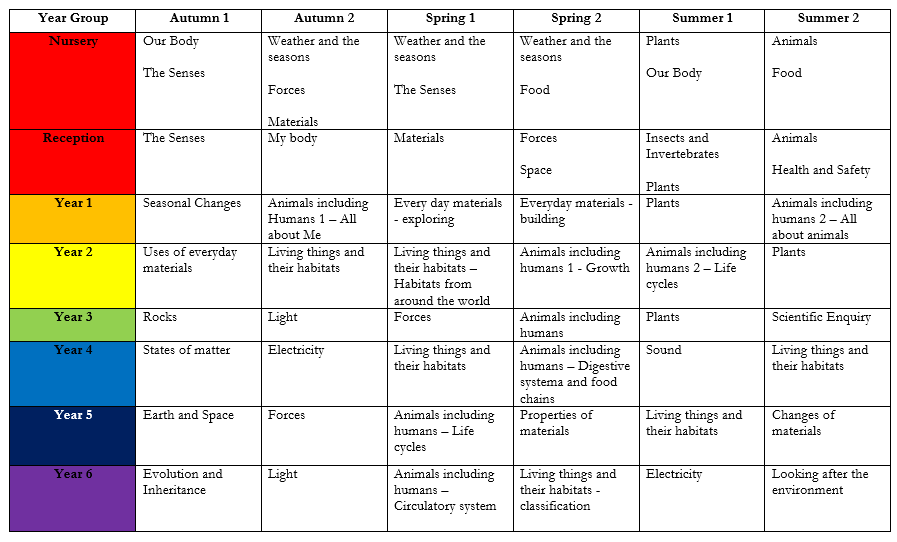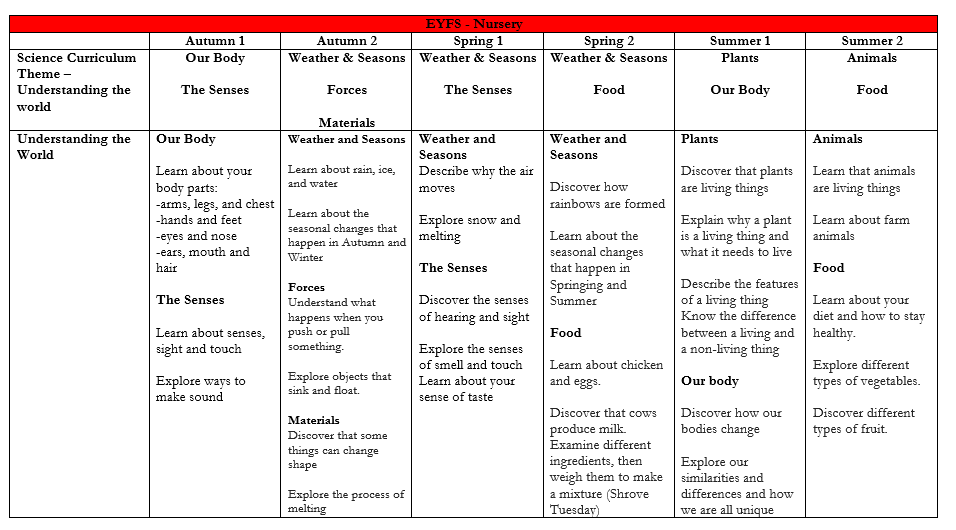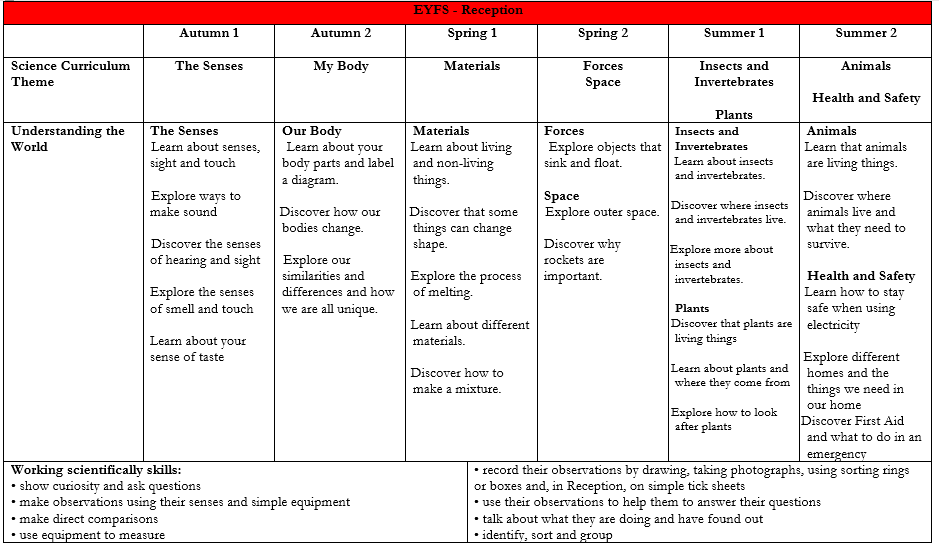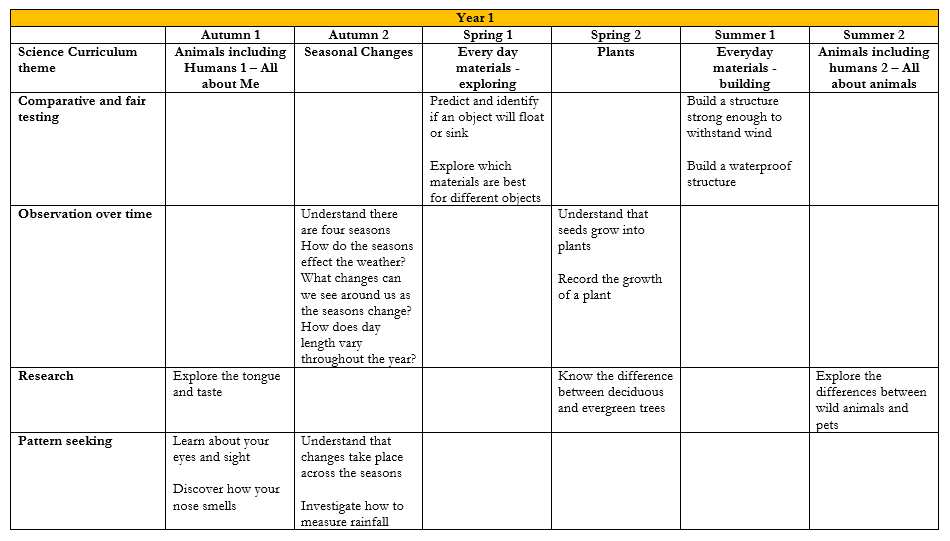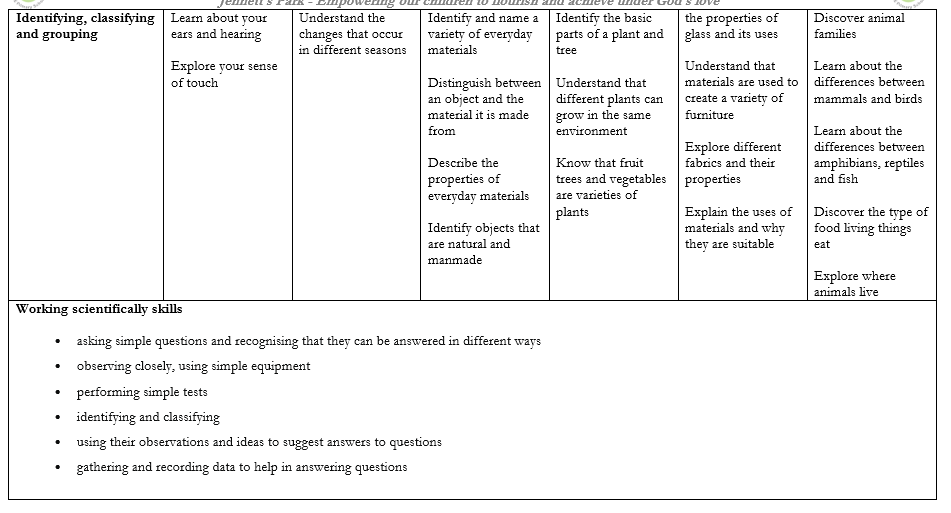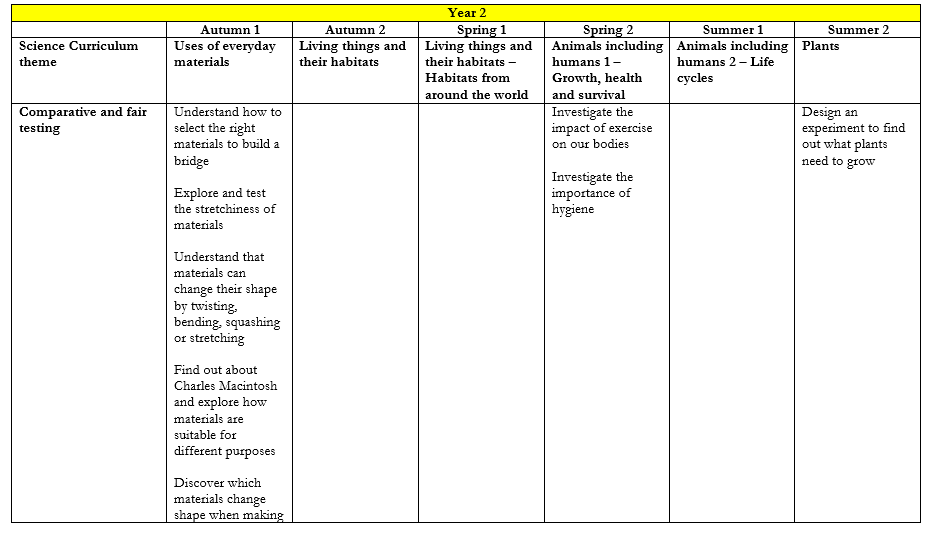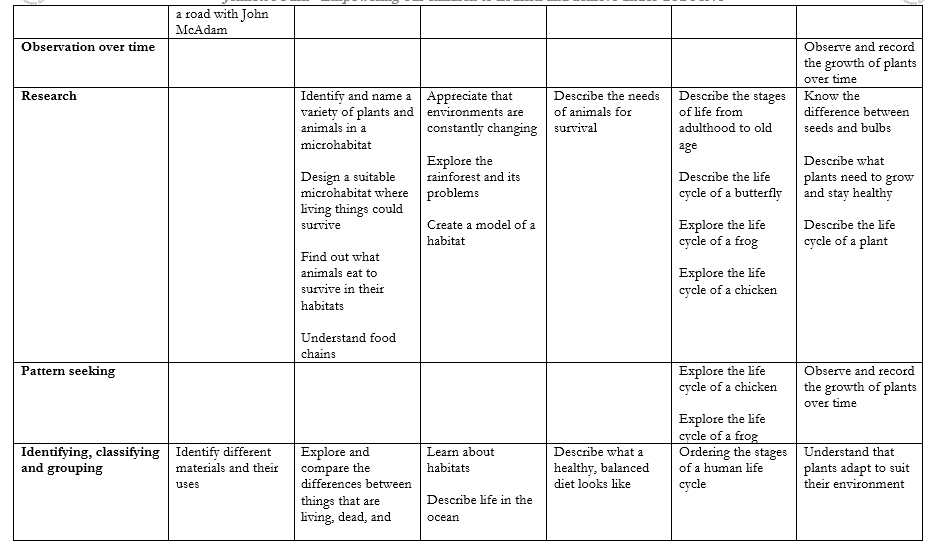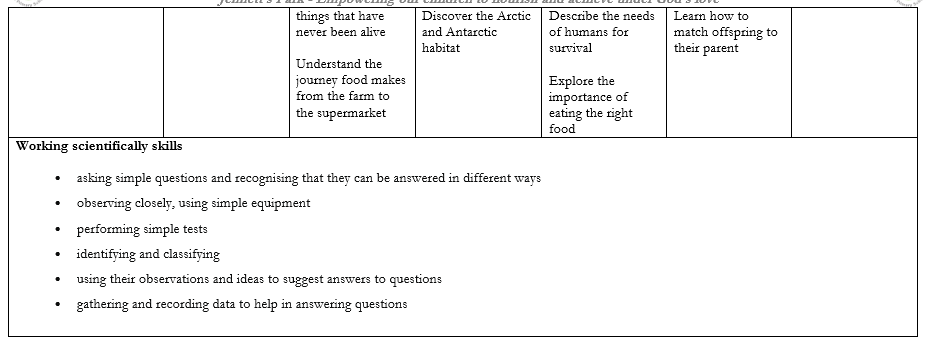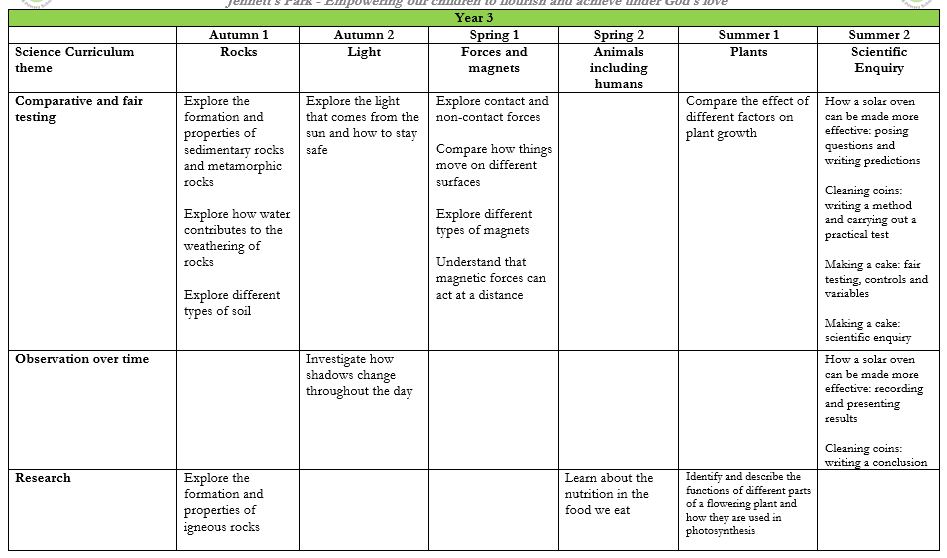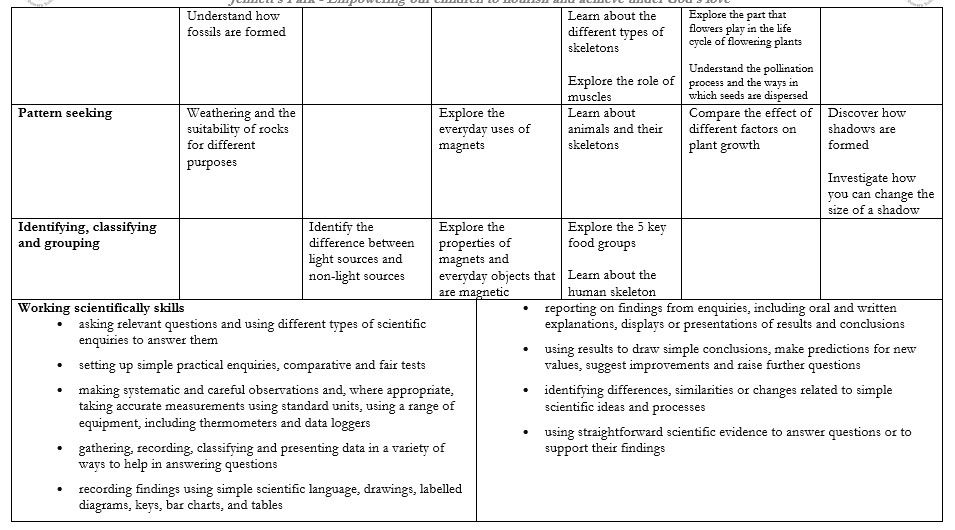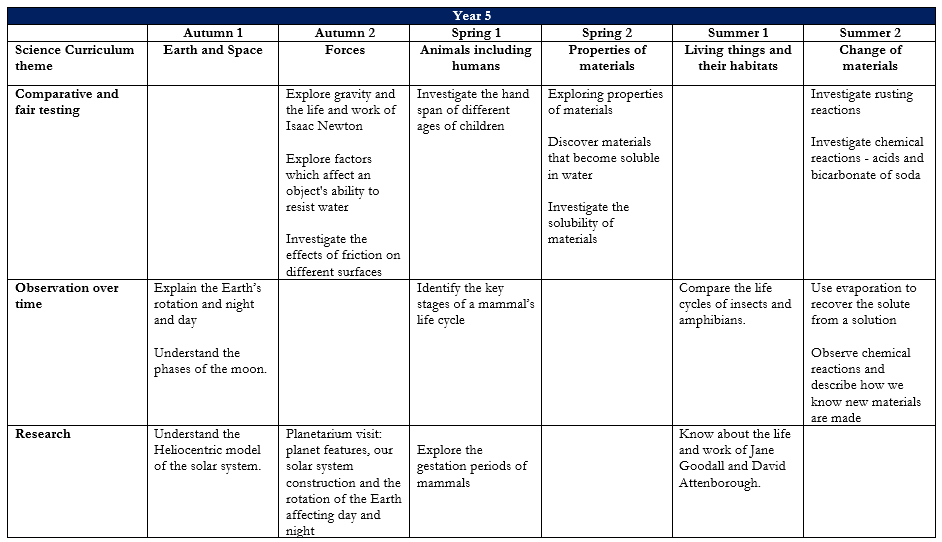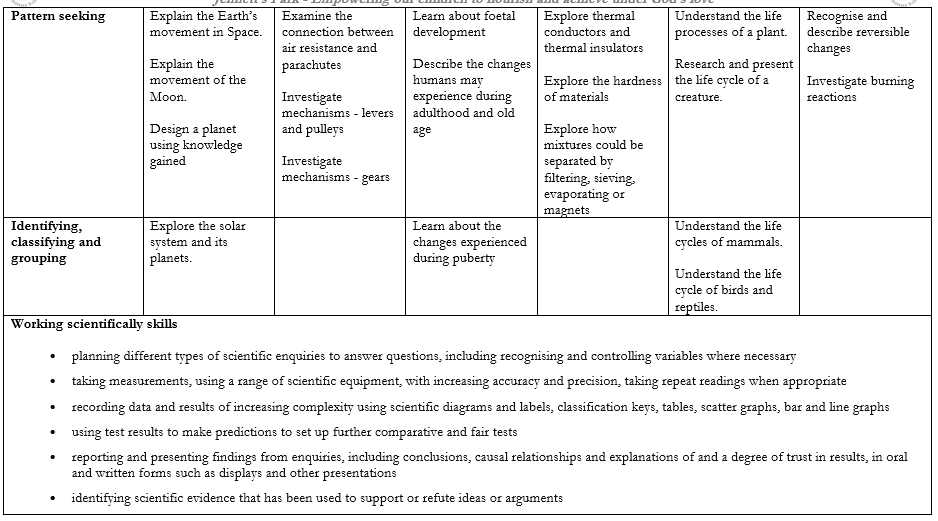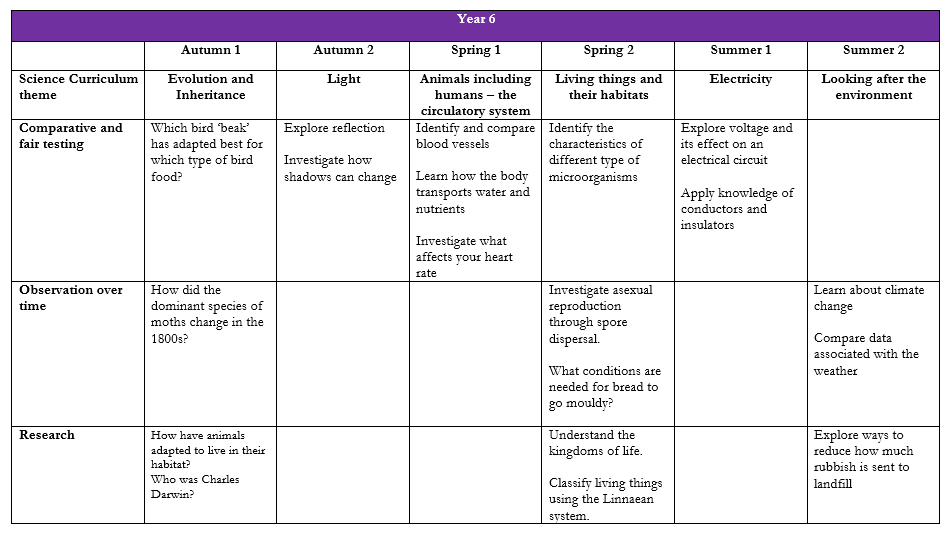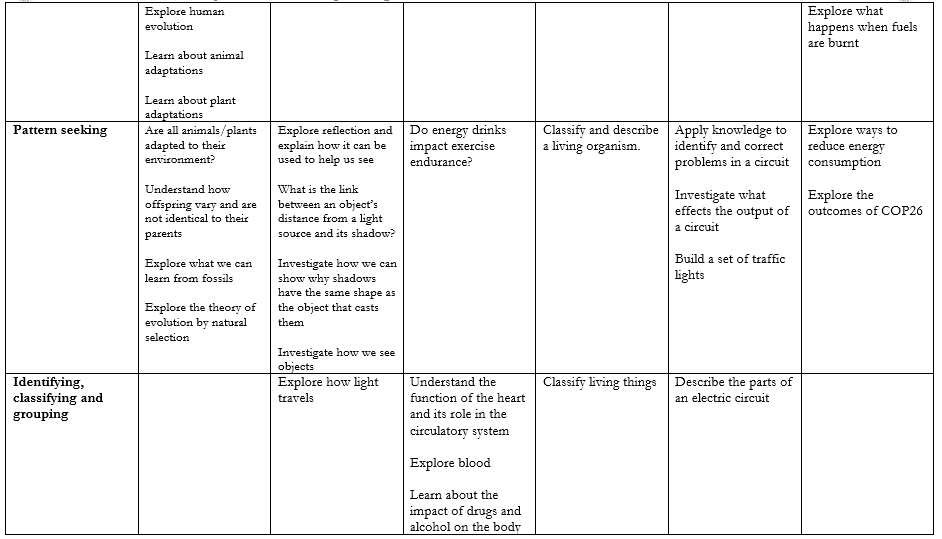Science - Intent_ Implementation_ Impact
Intent
At our school, we want to inspire and excite our children’s natural curiosity about the universe around them, developing an understanding of the impact science has. We want the experience of exploring and investigating scientifically, in a range of contexts, in order to create a continually evolving knowledge and understanding. We will enable pupils to work scientifically, to encourage enquiry, ask questions, take risks and to investigate. Through this, pupils will acquire and apply core skills and knowledge to equip them with resilience for an ever-changing future. These skills are embedded in each aspect of the programme of study, from EYFS to Year 6 and beyond. Topics are revisited, with a sequence of knowledge and concepts, giving pupils the opportunity to further develop their skills and build on prior knowledge. All of our pupils are given opportunities to ask questions, make predictions, investigate and be able to reflect and reach conclusions. The curriculum is designed to ensure that children are able to acquire key scientific knowledge through practical experiences; using equipment, conducting experiments, building arguments and explaining concepts confidently. Technical vocabulary for the disciplines of chemistry, biology and physics is taught across the school; key skills are mapped for each year group and are progressive throughout the key stages. These ensure systematic progression in accordance with the Working Scientifically skills expectations of the National Curriculum. Cross-curricular opportunities are also identified and planned to ensure contextual relevance.
Implementation
Teachers create a positive attitude to science learning within their classrooms and reinforce an expectation that all pupils are capable of achieving high standards in science. In EYFS, science is predominately delivered as part of continuous provision, through high-quality learning environments including access to the outdoors. Where appropriate, adult-led science inputs are delivered to inspire our pupils. Within KS1 and KS2, science planning is based on the National Curriculum content for each year group. Teachers are aware of the knowledge and skill development of the previous years to ensure that new learning builds on prior experiences. Additionally, as the children’s knowledge and understanding increases, they become more proficient in selecting, using scientific equipment, collating and interpreting results; they become increasingly confident in their growing ability to come to conclusions based on real evidence. The oracy skills displayed by our pupils will embed the technical skills and knowledge further, and will increase the level of knowledge displayed in a variety of formats; our pupils are constantly asked why, what if, explain and build on, as well as being encouraged to challenge and question each other. This display of skills and knowledge can be collated through diagrams, descriptions, discussions, quizzes, formal write-ups and physical investigations developed over time from EYFS through to the end of KS2.
Science is taught in planned and arranged blocks by the class teacher, with a discrete approach, following the scheme ‘Developing Experts’. This sets out a clear progression of skills from EYFS to Year 6, building on prior learning at each key stage. Knowledge organisers enable children to learn and retain key information; achieving a deeper knowledge and understanding of science. Working Scientifically skills are embedded into lessons to ensure that skills are systematically developed throughout the children’s school career; new vocabulary (introduced as rocket words in each lesson) and challenging concepts are introduced through direct teaching and assessed through the use of quizzes. This is developed through the years, in-keeping with the programme of study. At the end of each unit, key knowledge is reviewed by the children through assessment and consolidated as necessary.
We encourage further interest in science through our annual science week, which is accessible to all years from nursery through to year 6.
Impact
Pupils will talk positively about science and themselves as scientists, feeling empowered to ask questions and investigate. Pupils will be able to articulate ways in which they can answer questions using the five key methods of scientific enquiry: comparative and fair testing; observation over time; research; classifying and observing changes over time and pattern seeking. Our pupils will leave our school with an avid interest, knowledge and the skills required to enable them to further develop as scientists and pursue further education with a view to future employment in the science industry. This variety of teaching, learning and reviewing of knowledge and skills enables all our pupils to achieve the best possible outcomes.
Our pupils show excellent progress in scientific knowledge, understanding and skills with an eagerness to explore and learn. By providing a well-structured, engaging and inclusive curriculum, we empower our pupils to develop scientific knowledge, enquiry skills and a passion for life-long learning in science.
